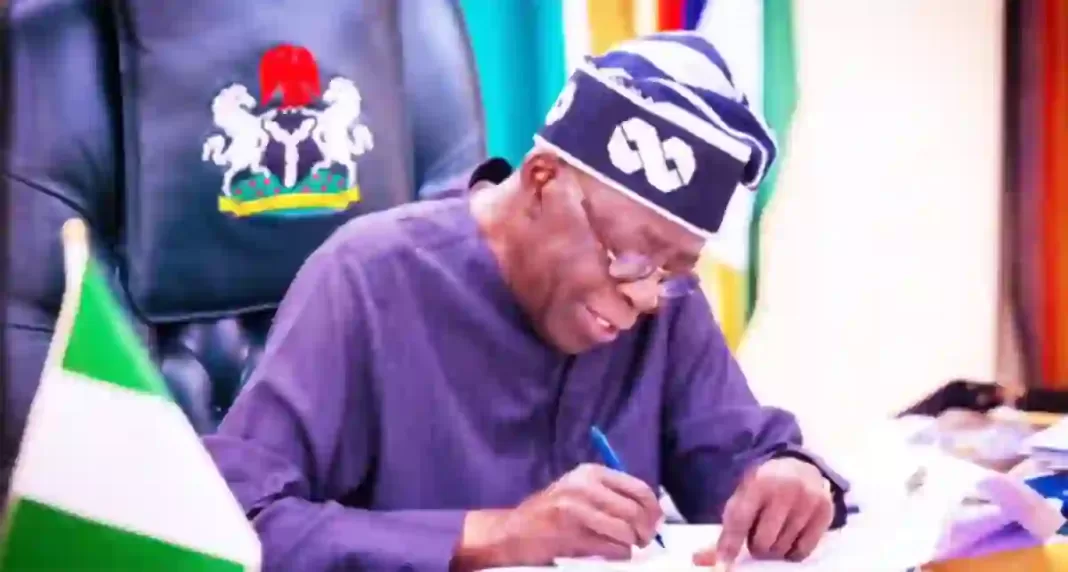The 2025 federal budget for Nigeria would definitely face numerous uncertainties that could hinder its success. At N47.9 trillion, it represents a 35% increase over the N27.5 trillion 2024 budget, signaling the government’s intention to drive aggressive spending. However, significant challenges such as overoptimistic oil production targets, exchange rate instability, heavy reliance on borrowing, and revenue collection inefficiencies raise doubts about its feasibility. As of August 2024, Nigeria’s budget deficit was 7.6 percent of GDP which was higher than the approved target of 3.8 percent. This was due to the country’s fiscal deficit as continued to increase.
The 2025 budget conceivability assumes an oil production target of 2.06 million barrels per day (mbpd) and a crude oil benchmark price of $75 per barrel. While the price aligns with global averages, the production target is highly optimistic. Historical data shows that Nigeria has struggled to meet similar targets due to persistent oil theft, pipeline vandalism, and infrastructure degradation. l would have suggested $68 per barrel and whatever the excess, above this price would be a plus. In fiscal planning, setting realistic revenue expectations is crucial for sound budgetary management. The approach of setting low revenue expectations with the aim of surpassing them can be viewed as prudent, as it creates a buffer for fiscal flexibility and reduces the likelihood of disappointment. However, overestimating revenues and then failing to meet those targets is generally considered a risky strategy for several reasons.
In 2023, Nigeria’s average daily production hovered around 1.2 to 1.4 mbpd, far below OPEC quotas. Meeting or exceeding the 2.06 mbpd target would require substantial reforms in oil sector security, transparency in operations, and investments in infrastructure. Without these, the oil revenue assumptions underpinning the 2025 budget risk being significantly overstated, potentially widening the deficit. The budget projects an exchange rate of N1,400 per dollar, significantly lower than the current rate of approximately N1,650. Reducing the Naira exchange rate from N1,600 to N1,400 is a desirable goal for Nigeria, as it would stabilise the economy, reduce inflationary pressures, and improve the purchasing power of citizens. However, achieving such a reduction is complex and would require significant structural changes.
Achieving this target will require bold interventions, including: Increasing Foreign Exchange (Forex) Liquidity. The Central Bank of Nigeria (CBN) would need to tighten monetary policy and prioritise interventions to stabilise the naira. If these measures are not implemented, exchange rate volatility could erode the dollar value of budgeted expenditures, undermine purchasing power, and inflate the cost of servicing foreign debt. The 2025 budget proposes N13.8 trillion in new borrowing, equivalent to 3.87% of the projected GDP. This raises concerns about debt sustainability as Nigeria’s public debt continues to grow.
A significant portion of revenue is already allocated to servicing debt, crowding out investments in critical sectors like infrastructure, healthcare, and education. Given that much of Nigeria’s debt is denominated in foreign currency, exchange rate depreciation will further increase the cost of debt servicing, worsening fiscal pressures. The success of the 2025 budget would depend heavily on achieving ambitious revenue targets, particularly from non-oil sources. In 2024, non-oil revenue was projected at $4.69 billion, falling short of expectations. Without major reforms, the 2025 revenue targets may also prove elusive.
We should expand the tax base and improving collection mechanisms these are essential for increasing non-oil revenue. The rich should pay more and tax net should be expanded to address this issue. Reducing dependence on oil requires investments in agriculture, manufacturing, and technology, alongside supportive policies to encourage private sector growth. Addressing corruption and inefficiencies in revenue collection agencies will enhance government earnings.Failure to meet these revenue targets would create a funding gap, necessitating further borrowing or austerity measures.
Nigeria’s inflation rate, currently among the highest in Africa, poses a significant challenge to the 2025 budget’s implementation. Rising prices erode purchasing power, increase the cost of goods and services, and reduce the real value of public spending. The government’s projection of 6.4% GDP growth in 2025 is highly ambitious, given Nigeria’s current economic challenges:
Issues such as inadequate infrastructure, bureaucratic bottlenecks, and weak institutions continue to stifle economic growth. Persistent security challenges, particularly in the northern and oil-producing regions, discourage investment and disrupt economic activity. Unlocking the potential of Nigeria’s private sector requires consistent policies, reduced regulatory hurdles, and improved access to credit. While growth is achievable with targeted reforms, the government must adopt a realistic outlook and address these structural barriers.
Several risks could derail the 2025 budget, including, revenue shortfalls, overestimated oil revenues and slow non-oil revenue growth could result in larger-than-expected deficits. Continued naira depreciation will inflate the cost of imports, debt servicing, and capital projects. The success of economic reforms depends on strong political will, which may be undermined by resistance from vested interests or public dissatisfaction.
The 2025 federal budget represents an ambitious effort by the President Bola Tinubu government to stimulate economic growth and address critical challenges. However, its success hinges on the resolution of long-standing issues such as oil production inefficiencies, exchange rate instability, over-reliance on borrowing, and inadequate revenue generation. Without bold and sustained reforms, the budget risks falling short of its objectives, exacerbating fiscal pressures and undermining public confidence. To ensure success, the government must prioritise transparency, fiscal discipline, and policies that promote economic diversification and resilience.
Olufemi Aduwo
Permanent Representative of CCDI to, United Nations
Chairman, AU -countries group, Civil Society Policy Forum (CSPF) of World Bank, A working member of World Bank independent integrity Group.
Email: [email protected]
www.ccdiltd.org
NB: Centre for Convention on Democratic Integrity Ltd/Gte is registered in Nigeria with Corporate Affairs Commission as a non-profit and also in State of Maryland, United States as Center for Convention on Democratic Integrity lnc, as Federal tax-exempt non-profit organisation
Discover more from The Source
Subscribe to get the latest posts sent to your email.








